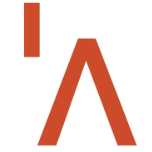Detailed introduction of University of Applied Arts Vienna:
Introduction
The University of Applied Arts Vienna is a public institution of higher learning with a long history and excellent reputation in Austria. It focuses on education and research in the field of applied arts, and has cultivated many artistic talents with innovative spirit and practical ability, and has an important influence in the international art world.
Overview
Student size: There are about 2,000 students studying here, one quarter of whom are from abroad, and the student group has a diverse cultural background.
Course settings: It provides a rich and diverse range of professional courses, covering architecture, plastic arts, industrial design, media design, art education and other fields, including painting, print design, landscape design, media art, digital art, preservation and restoration and other sub-specialties.
History and establishment time
The school was founded in 1867. Its School of Architecture was initiated by Semper and established in the late 19th and 20th centuries. At the beginning of the century, the school became the birthplace of the Vienna Secession and trained many artists who broke with the old court art, such as Gustav Klimt, Egon Schiele, Oscar Kokoschka, etc., which had a profound impact on the development of modern art. In 1998, it was renamed the University of Applied Arts Vienna.
School Strength
Teaching Staff: 200 There are many professors and teachers, including internationally renowned artists and scholars such as Zaha Hadid. They not only have profound professional knowledge, but also have rich practical experience, and can provide students with high-quality teaching and guidance.
Research results: The school has carried out extensive and in-depth research in the field of art and architecture, and has achieved a series of important results. For example, students and teachers of the School of Architecture have conducted a lot of exploration in the combination of digitalization, new media technology and architectural design, which has promoted the innovation of architectural design concepts and methods. Their research results have attracted wide attention in the international architectural community.
International exchanges and cooperation: We have established cooperative relations with many top art schools and institutions around the world, actively carried out student exchange, teacher exchange, joint research and other projects, provided students with a broad international exchange platform, and promoted the exchange and integration of artistic concepts and creative methods under different cultural backgrounds.
Nature of the institution
Public university.
Educational philosophy
Emphasis on the combination of theory and practice, focusing on cultivating students' personal artistic creation Creativity and critical thinking ability, encourage students to explore and innovate in artistic practice, use art as a medium of communication and expression, pay attention to the significance and influence of art in society, so that students can create works of art with contemporary characteristics and social value on the basis of inheriting traditions.
Key laboratories and disciplines
Key laboratories: The school has not explicitly established key laboratories in the traditional sense, but has practice studios and research centers closely related to various majors, such as the three architectural research rooms of the School of Architecture, which provide students with advanced design tools and experimental platforms to support them in conducting innovative design research.
Key disciplines: Architecture, plastic arts, industrial design, media design, art education and other disciplines are the key disciplines of the school. These disciplines have high levels and strengths in teaching, scientific research and practice, providing students with high-quality educational resources and research opportunities.
Departments
The school has five faculties: Architecture, Sculpture and Modeling and Design, Media, Fine Arts, and Art Education, including 12 departments, as follows:
Department of Architecture: Covering professional directions such as architectural design and urban planning, focusing on cultivating students' spatial thinking ability and architectural design practice ability.
Department of Sculpture, Modeling and Design: including majors such as sculpture art and modeling design, emphasizing students' creative ability and material application skills in three-dimensional space.
Department of Media: with majors such as media art, digital art, and film and television production, focusing on the application of new media technology in artistic creation, and cultivating students' cross-media creative ability.
Department of Fine Arts: including majors such as painting, printmaking, and photography, focusing on cultivating students' art creation skills and artistic expression.
Department of Art Education: mainly cultivates professional talents in the field of art education, and offers courses such as art education theory and art teaching methods to enable students to have the ability to engage in art education work.
Ranking
In the 2024 QS World University Subject Rankings, the school ranks 51-100.
Expenses
Tuition fees: The reference tuition fee is 1489 euros/academic year.
Living expenses: about 6000-10000 euros per year.
Campus
Location: The main teaching building is located at Oscar Kokoschka Square 2 in Vienna, adjacent to the Austrian Museum of Applied Arts. The surrounding cultural and artistic atmosphere is strong, providing students with rich art resources and sources of inspiration.
Facilities: The campus is equipped with advanced teaching facilities and art creation spaces, such as libraries, studios, exhibition halls, etc. The library was built in 1493 and is the oldest and most important art library in the field of art and architecture in Austria. It has more than 80,000 books and more than 200 art magazines, providing strong support for students' learning and research.
-

Graz University of Technology
-

University of Linz
-
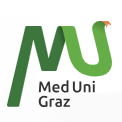
Medical University of Graz
-

University of Leoben
-

Medical University of Vienna
-
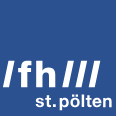
St. Pölten University of Applied Sciences
-
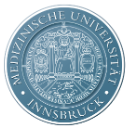
Innsbruck Medical University
-
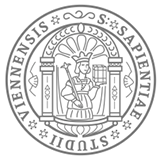
University of Vienna
-
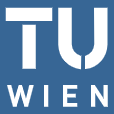
Vienna University of Technology
-

University of Natural Resources and Applied Life Sciences, Vienna
-

Mesoamerican University
-

Istmo University
-

Mariano Galvez University of Guatemala
-

Regional University of Guatemala
-

Galileo University
-

Francisco Marroquín University
-

Rafael Landívar University
-

University of the Valley of Guatemala
-

University of San Carlos of Guatemala
-

Technological Institute of Tlaxcala Plateau
-

Golfo University
-

Technological University of South Sonora
-

Technological University of Huejotzingo
-

Tizimín Institute of Technology
-

Chilpancingo Institute of Technology

